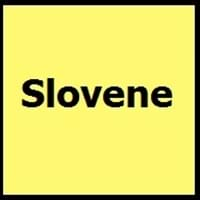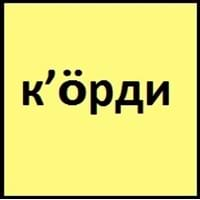Slovene vs Kurdish
Countries
European Union, Slovenia
Iraq, Kurdistan
National Language
Austria, Croatia, Hungary, Italy, Slovenia
Azerbaijan, Georgia, Iran, Iraq, Syria, Turkey
Second Language
Not spoken in any of the countries
Not spoken in any of the countries
Speaking Continents
Europe
Middle East
Minority Language
Austria, Hungary, Italy
Not spoken in any of the countries
Regulated By
Slovenian Academy of Sciences and Arts
Not Available
Interesting Facts
- The Freising Monuments is the oldest preserved records of written Slovene from 10th century.
- The first Slovene book was printed in 1550.
- The vocabulary in Kurdish is of Iranian origin.
- In the middle East, Kurdish is the fourth largest ethnic group.
Similar To
Serbo-Croatian
Farsi Language
Derived From
Not Available
Not Available
Alphabets in
Slovene-Alphabets.jpg#200
Kurdish-Alphabets.jpg#200
Scripts
Latin
Arabic, Cyrillic, Latin
Writing Direction
Left-To-Right, Horizontal
Right-To-Left, Horizontal
How Are You?
Kako se imate?
Tu çawa yî?
Good Night
Lahko noč
Şev xweş
Good Evening
Dober večer
Evare baş
Good Afternoon
Dober dan
Nee-wa-rowt bash
Good Morning
Dobro jutro
Bayanit bash
I Love You
Ljubim te
Ez te hez dikem
Excuse Me
Oprostite
Bê zehmet
Dialect 1
Prekmurje Slovene
Northern Kurdish
Where They Speak
Hungary, Slovenia
northern Iraq, northern Syria, northwest Iran, southeast Turkey
Dialect 2
Resian
Central Kurdish
Where They Speak
Italy
Iraq, Kurdistan Province of western Iran
How Many People Speak
Not Available
Dialect 3
Styrian
Southern Kurdish
Where They Speak
Slovenia
Eastern Iraq
How Many People Speak
Not Available
Speaking Population
Not Available
Native Name
Not available
Kurdí / کوردی / к’öрди
Alternative Names
Slovenian, Slovenscina
Not Available
French Name
slovène
kurde
German Name
Slowenisch
Kurdisch
Pronunciation
[slɔˈʋèːnski ˈjɛ̀ːzik], [slɔˈʋèːnʃt͡ʃina]
Not Available
Origin
972-1093
16th century CE
Language Family
Indo-European Family
Indo-European Family
Subgroup
Not Available
Indo-Iranian
Branch
Not Available
Not Available
Early Forms
No early forms
Not Available
Standard Forms
Slovene
Kurdish
Signed Forms
Not Available
Not Available
Scope
Individual
Macrolanguage
ISO 639 6
Not Available
Not Available
Glottocode
slov1268
kurd1259
Linguasphere
53-AAA-f
58-AAA-a
Language Type
Living
Living
Language Linguistic Typology
Not Available
Subject-Object-Verb
Language Morphological Typology
Fusional
Not Available
Slovene and Kurdish Language History
Comparison of Slovene vs Kurdish language history gives us differences between origin of Slovene and Kurdish language. History of Slovene language states that this language originated in 972-1093 whereas history of Kurdish language states that this language originated in 16th century CE. Family of the language also forms a part of history of that language. More on language families of these languages can be found out on Slovene and Kurdish Language History.
Slovene and Kurdish Greetings
People around the world use different languages to interact with each other. Even if we cannot communicate fluently in any language, it will always be beneficial to know about some of the common greetings or phrases from that language. This is where Slovene and Kurdish greetings helps you to understand basic phrases in Slovene and Kurdish language. Slovene word for "Hello" is Halo or Kurdish word for "Thank You" is Sipas. Find more of such common Slovene Greetings and Kurdish Greetings. These greetings will help you to be more confident when conversing with natives that speak these languages.
Slovene vs Kurdish Difficulty
The Slovene vs Kurdish difficulty level basically depends on the number of Slovene Alphabets and Kurdish Alphabets. Also the number of vowels and consonants in the language plays an important role in deciding the difficulty level of that language. The important points to be considered when we compare Slovene and Kurdish are the origin, speaking countries, language family, different greetings, speaking population of these languages. Want to know in Slovene and Kurdish, which language is harder to learn? Time required to learn Slovene is 44 weeks while to learn Kurdish time required is 4 weeks.





